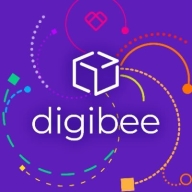

Jitterbit Harmony and Digibee are competing integration platforms. Digibee appears to have an edge with its advanced features and strong customer service, while Jitterbit Harmony is recognized for its favorable pricing strategies.
Features: Jitterbit Harmony offers comprehensive API integration capabilities, robust customization options, and wide-ranging compatibility. Digibee provides scalable architecture, enhanced monitoring tools, and superior adaptability for dynamic environments, making it attractive for scalability-focused users.
Ease of Deployment and Customer Service: Jitterbit Harmony is known for straightforward deployment and reliable support. Digibee, with its intuitive deployment model and exceptional customer service, ensures smoother integration projects and effective assistance.
Pricing and ROI: Jitterbit Harmony offers competitive pricing and clear ROI through efficient integration solutions, presenting an affordable option for budget-conscious businesses. Digibee's initial setup costs are counterbalanced by robust features and long-term returns, appealing to organizations prioritizing advanced capabilities and scalability.
| Product | Market Share (%) |
|---|---|
| Jitterbit Harmony | 2.4% |
| Digibee | 1.3% |
| Other | 96.3% |

| Company Size | Count |
|---|---|
| Small Business | 8 |
| Midsize Enterprise | 3 |
| Large Enterprise | 1 |
Digibee serves organizations by integrating systems, automating workflows, and managing data across applications, enhancing scalability and adaptability to business changes.
Organizations use Digibee to streamline complex processes and connect disparate systems efficiently. The platform accelerates digital transformation and operational efficiency with robust features and seamless integration capabilities. High-level support for API management and reliable performance in enterprise environments are frequently highlighted. Users benefit from ease of use, quick deployment, and comprehensive monitoring tools. Although some users face performance issues during high traffic periods and need better documentation, Digibee's customizable workflows and security standards remain strengths. Enhanced integration with other tools and a more intuitive design are requested to further improve efficiency.
What are Digibee's most valuable features?Digibee is often implemented in industries like finance, healthcare, and retail to manage complex system integrations and automate workflows. In finance, it supports compliance and data security. Healthcare organizations use it for integrating patient data systems, and retail businesses leverage it for optimizing supply chain processes.
Jitterbit Harmony offers an advanced integration platform that simplifies data transformation, helps users quickly connect apps, and automates workflows, streamlining complex business processes efficiently.
Designed to meet the high demands of modern businesses, Jitterbit Harmony enables seamless integration across cloud and on-premise environments. By leveraging its powerful tools and user-friendly design, users can accelerate innovation, reduce operational costs, and enhance productivity. It bridges the gap between traditional and emerging technologies, ensuring organizations can adapt quickly to market changes and remain competitive.
What are the key features of Jitterbit Harmony?Jitterbit Harmony finds its application across numerous industries, from enhancing data integration in the healthcare sector to optimizing supply chain logistics in manufacturing. It supports financial institutions by improving transaction processing and facilitates real-time data connectivity in retail environments, making it a versatile choice for diverse industries looking to innovate rapidly.
We monitor all Integration Platform as a Service (iPaaS) reviews to prevent fraudulent reviews and keep review quality high. We do not post reviews by company employees or direct competitors. We validate each review for authenticity via cross-reference with LinkedIn, and personal follow-up with the reviewer when necessary.